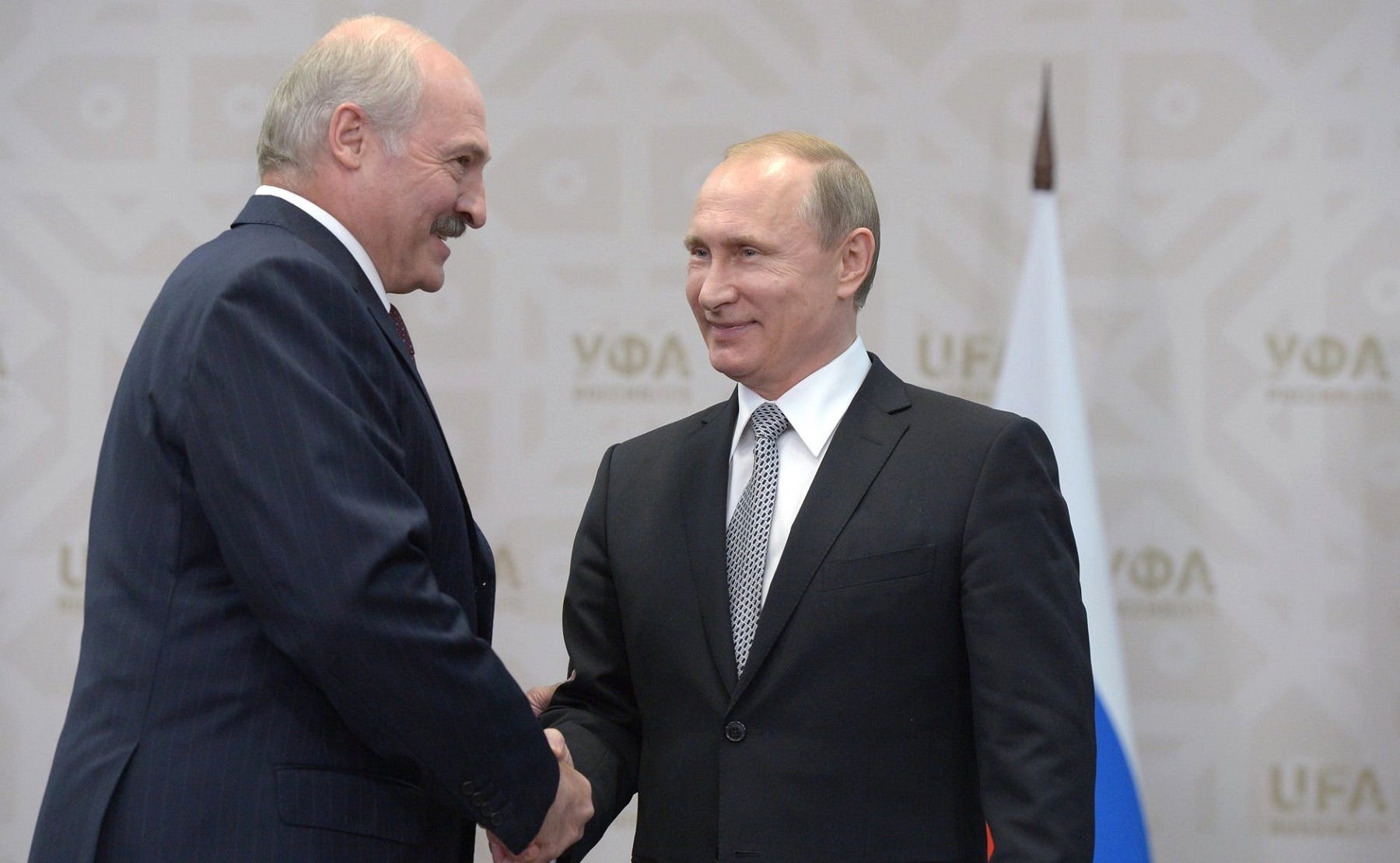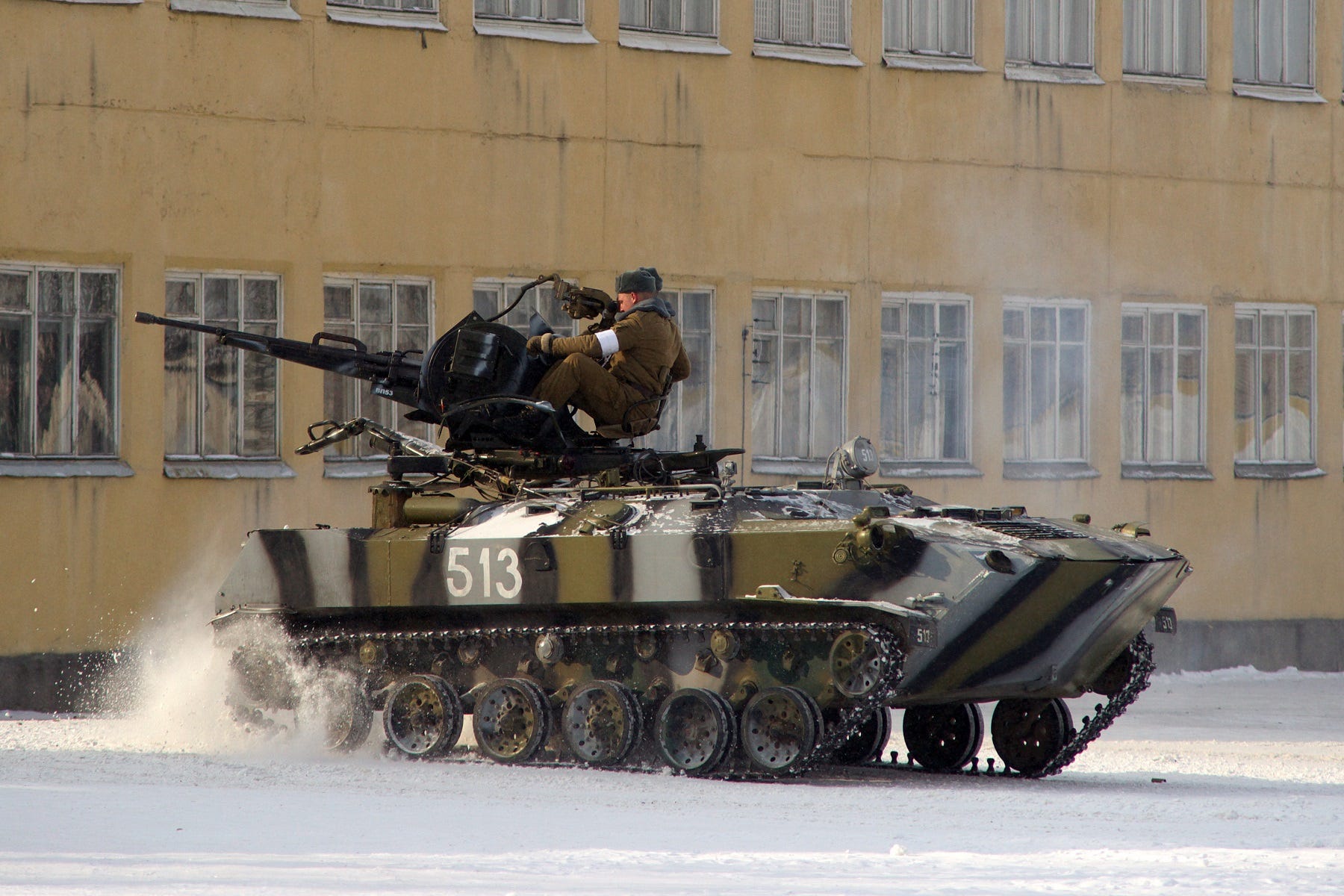You are using an out of date browser. It may not display this or other websites correctly.
You should upgrade or use an alternative browser.
You should upgrade or use an alternative browser.
RUSSIA 🇷🇺 Thread: Wikileaks=FSB front, UKRAINE?, SNOWED LIED; NATO Aggression; Trump = Putins B!tch
- Thread starter ☑︎#VoteDemocrat
- Start date
More options
Who Replied?DonKnock
KPJ Gonna Save Us
LogicFirst
Banned
It's gettin real spooky out here.
88m3
Fast Money & Foreign Objects
https://warisboring.com/belarus-pre...ictator-knocks-russia-86384fd2a468#.j34caa7oq
Belarus Prepares for Hybrid War as ‘Europe’s Last Dictator’ Knocks Russia
Well, this is alarming
2 days ago

Belarusian president Alexander Lukashenko shakes Russian president Vladimir Putin’s hand in July 2015. Kremlin photo
by ROBERT BECKHUSEN
Belarusian president Alexander Lukashenko, often called “the last dictator in Europe,” had long kept his country aligned politically, economically and militarily close to Russia. But this relationship deteriorated after the Russian invasion of Crimea — and as Lukashenko began to hedge, albeit slowly and very cautiously, toward the West.
Given that context, several recent events have been disquieting.

In a more than seven-hour news conference on Feb. 3, 2017, Lukashenko blasted Russia for reimposing border controls — a response to Belarus relaxing visa rules for foreign visitors — and categorically rejected a Russian plan to build an air base on Belarusian soil.
Lukashenko also ordered the arrest of Russia’s top food safety official, and accused Russian president Vladimir Putin of “practically appointing Trump.” The strongman further criticized Russia for sharply cutting oil exports to Belarus.
“Russia has become concerned that Belarus will go away, that Lukashenko has turned to the West,” he said.
Given the tensions involved, the Belarusian potentate took time to caution that “there will be no war … no one will occupy us, no one will send in troops. We will protect ourselves and our independence.”
The situation is strange. On Feb. 4, the Associated Press published a story that contained a random and disturbing anecdote that White House “national security aides have sought information about Polish incursions in Belarus, an eyebrow-raising request because little evidence of such activities appears to exist.”
And on Feb. 5, the Belarusian strongman gave kudos to a “fraternal Ukraine” which is “fighting for its independence” — noting that he was referring to an economic fight. Just days before, the Belarusian military conducted a large readiness test.
Separately, these reports — especially the one sourced from Donald Trump’s White House — and Lukashenko’s knocks on Russia are noteworthy. In a series, they’re quite remarkable. TV Rain, a Russian independent news channel, described the row as the “worst crisis” between Belarus and Russia in their recent history.

A Belarusian BTR-D armored vehicle. Serge Serebro photo via Flickr
The causes of the present crisis are complicated. Belarus retains a largely state-managed economy carried over from the Soviet Union. Lukashenko, a former collective farm manager, has been president since 1994 thanks to rigged elections which he has openly boasted about.
Belarus’ economy heavily depends on a combination of Russian oil — which it refines — and subsidies, along with back-and-forth trade to Europe. But Western sanctions on Russia and a decline in oil prices have pummeled the Belarusian economy, which is in a severe recession.
Lukashenko has begun to experiment. Liberal advocates from the West now meet with Belarusian officials, which was unprecedented until recently. But Belarusians are hurting. Russia has cut its oil exports to Belarus by half, and pushing too fast on reforms could threaten the stability of Lukashenko’s regime.
“With the status quo of the past two decades looking increasingly unsustainable, some regard his predicament as unenviably similar to that of Mikhail Gorbachev in the 1980s,” Foreign Policy observed in September 2016.
Fortunately for Lukashenko, Western countries have given up on trying to reform his authoritarian ways, and in 2016 the European Union lifted most sanctions it imposed because of the regime’s abysmal human rights record.
Meanwhile, Russian state-controlled media outlets have aired speculative stories that the West could topple the Belarusian government or provoke instability. Irredentist, nationalist commentators have even taken to advocating for the absorption of Belarus’ territory … by force, if necessary.

Arseni Sivitski, a reserve officer in the Belarusian military and the director of the Minsk-based Center for Strategic and Foreign Policy Studies, believes a Russian invasion of Belarus modeled on Eastern Ukraine is plausible — although the likelihood of such an event is impossible to predict.
He drew that conclusion from the political situation and the Belarusian army’s own preparations — including exercises in 2016 and a change in military doctrine to prepare for a “Donbass-like hybrid scenario,” Sivitski wrote.
“Belarusian military strategists simulated a situation in which a hypothetical foreign adversary provoked an internal armed conflict in the country with the help of reconnaissance and sabotage groups and illegal armed formations.”
“The Belarusian Armed Forces have been practicing neutralizing illegal armed groups, securing and releasing captured critical infrastructure objects, and neutralizing separatist groups backed from abroad,” Sivitski added. “Assigned tasks also included establishing temporary checkpoints on the state border and main road routes and conducting surveillance along the border.”
Sivitski also observed that publicly available logistics data from the Russian Ministry of Defense indicates that it plans to send more than 4,000 railway carriages to Belarus in 2017, compared to anywhere from 50–200 carriages annually between 2013–2016.
Belarus and Russia regularly team up for military exercises. But that’s an unusually large amount of freight. Two hundred carriages can support a single motorized rifle brigade. Four thousand can support…
“…a number of troops to Belarus almost equal to the 1st Guards Tank Army of the Western Military District, and not simply participate in regular military drills.”
Now the intentions are speculative and hypothetical — and the freight could very well be for an exercise … or some other reason. Sivitsi noted that the timing of the Ministry of Defense release came a week before a trip by Lukashenko to Moscow in November 2016.
Thus, the data could be a means of “putting psychological pressure on Minsk in order to bring Belarus into line with the Kremlin.” Intimidation.
In any case, this isn’t the first time Belarus and Russia have experienced tensions. And Minsk is still closer politically to Russia — and to Putin — than it is to the West. Lukashenko is not the kind of dictator who moves fast.
Russia may also seek to deploy troops in Belarus to match a NATO tank buildup in Poland. But what happens if Lukashenko says no?
The Belarusian military with its 48,000 active duty soldiers and airmen — plus an additional 289,500 reservists — would have a difficult time resisting Russia.
Minsk’s air force has “questionable” serviceability, according to the International Institute for Strategic Studies, and the country “would not be capable of repulsing a serious incursion across its borders.”
Regardless, such a scenario would be a calamity. Keep a close eye on Belarus.

It's gettin real spooky out here.
Mantis Toboggan M.D.
Drink wolf cola
It won't load. What's it say?
Wanna see Putin's kill list?
http://www.afio.com/publications/OLESON_on_Putin_from_AFIOINTEL_FALL2016_Vol22_no2.pdf
http://www.afio.com/publications/OLESON_on_Putin_from_AFIOINTEL_FALL2016_Vol22_no2.pdf
 Here we go
Here we go